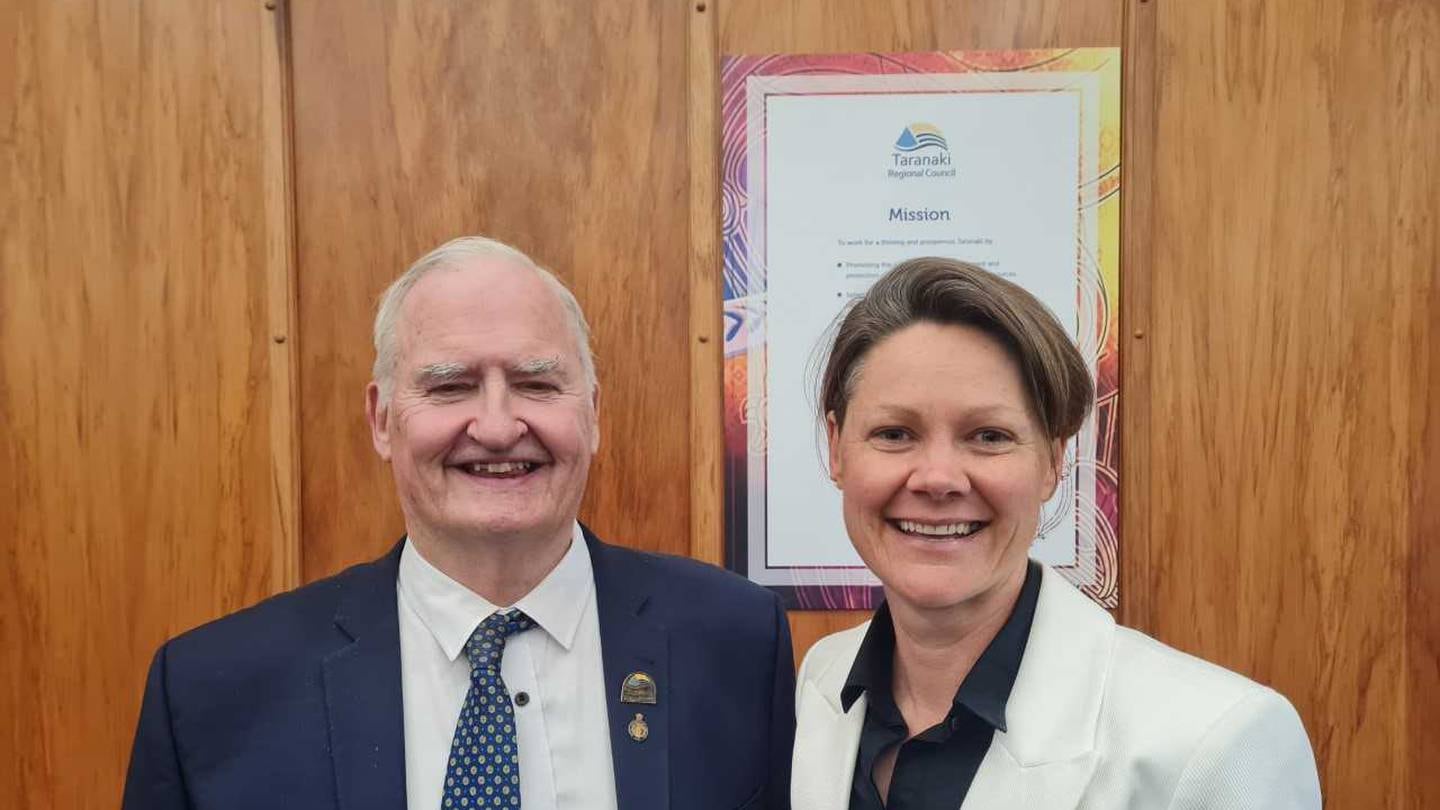Taranaki councillors have shut down a discussion on the Treaty Principles Bill, despite the legislation’s cheerleader saying he wants everyone to read and debate it.
The Bill wants new interpretations of Te Tiriti o Waitangi to replace principles that grew out of fifty years of Treaty debate and court cases.
The Treaty Principles Bill creator, Act Party leader David Seymour, repeatedly pleads for people to read it and debate it.
But at Tuesday’s Taranaki Regional Council (TRC) meeting the deputy chair Neil Walker said he didn’t want to.
“I just think it’s too divisive. I think it’s not an appropriate thing, so therefore I’m just saying at this stage we don’t want to make a submission.”
The Government bill is currently attracting submissions ahead of a six-month Select Committee public hearing.
At the request of TRC chair Charlotte Littlewood, council officers had written a submission for councillors to debate.
But after nine election wins and a quarter of a century at the council table, ever vocal for the farmers’ lobby on all sorts of legislation, councillor Neil Walker has decided TRC is not about politics.
“I think personally that the regional council is not a political body, and I certainly don’t want to be sitting here time and time again, sending the Government political messages about various things.
“We’re essentially an environmental council and a statutory body doing regulation. We are not doing all of these kind of things, lecturing the Parliament on everything.”
TRC has sent multiple submissions to the current Government and dozens more to the previous Labour-led regime.
Littlewood tried to open debate, noting Māori ward councillor Bonita Bigham and veteran David Lean already had their hands up to speak.

But deputy chair Walker pulled rank before anyone else could have a say.
“Having had a bit of a consultation with people” he’d determined it was too hot a potato.
“You all know this, this is a very divided matter in Taranaki.
“I believe at this stage we should not take sides as we truly represent the people of Taranaki. We should let Parliament sort their own affairs.”
“We want to work cooperatively with all the people of Taranaki and to take any side is unhelpful.”
Sixteen-year regional councillor Donald McIntrye moved to not send the submission, nor even discuss it, and his co-veteran Walker seconded the motion.
After almost quarter of an hour of discussion about the rules, but none about Te Tiriti, the council voted.
With only Littlewood, Bigham and fellow councillor Susan Hughes KC up for the discussion the submission was silenced.
It’s the second time in a week that a senior Taranaki local politician has quashed council debate on a contentious topic.
Last week New Plymouth mayor Neil Holdom refused a request that the council call for a ceasefire in Gaza.
The call was from Parihaka Pā – famed for non-violent resistance to settler colonialism – and every iwi of the district.
They said the ceasefire bid was a non-partisan call for peace, and was aligned with Government policy.
But Holdom personally refused the debate bid, saying communities from both sides of the Gaza war lived in New Plymouth and the district council shouldn’t take sides.
The defeated TRC submission said the Treaty Principles Bill “will not bring any added value to the relationships we have or the practical work that we need to do in partnership with tangata whenua.
“Indeed, there is a very real danger that it will undermine existing relationships and stymie the good work being done.”
The submission said the Treaty was central to council work: for example section 8 of the Resource Management Act requires the principles of te Tiriti be taken into account.
“As a creature of statute, the Council is dependent on effective and efficient legislation… to serve its community well.
“Council does not believe that the Bill meets either of these tests and is concerned that a deterioration in Crown-Māori relations will ultimately lead to poorer legislation, worse community outcomes and make Council’s ability to do its work more challenging.”
Lack of consultation with Māori was “disappointing”.
“For one party to unilaterally seek to change the Treaty’s interpretation and application without proper engagement with the other is a breach of that agreement and the high level of trust that needs to exist in such relationships.”
It pointed out the Waitangi Tribunal had noted that Seymour’s new principles “do not accord with existing jurisprudence on the Treaty principles, or the historical circumstances of the text and spirit of the Treaty/te Tiriti.”
And the council submission worried the Bill could be harmful to Crown-Māori relations.
“The Bill risks fostering greater division and disorder. As noted by the Waitangi Tribunal, this will bring significant prejudicial impacts on Māori that ‘cannot be overstated’.”
LDR is local body journalism co-funded by RNZ and NZ On Air




